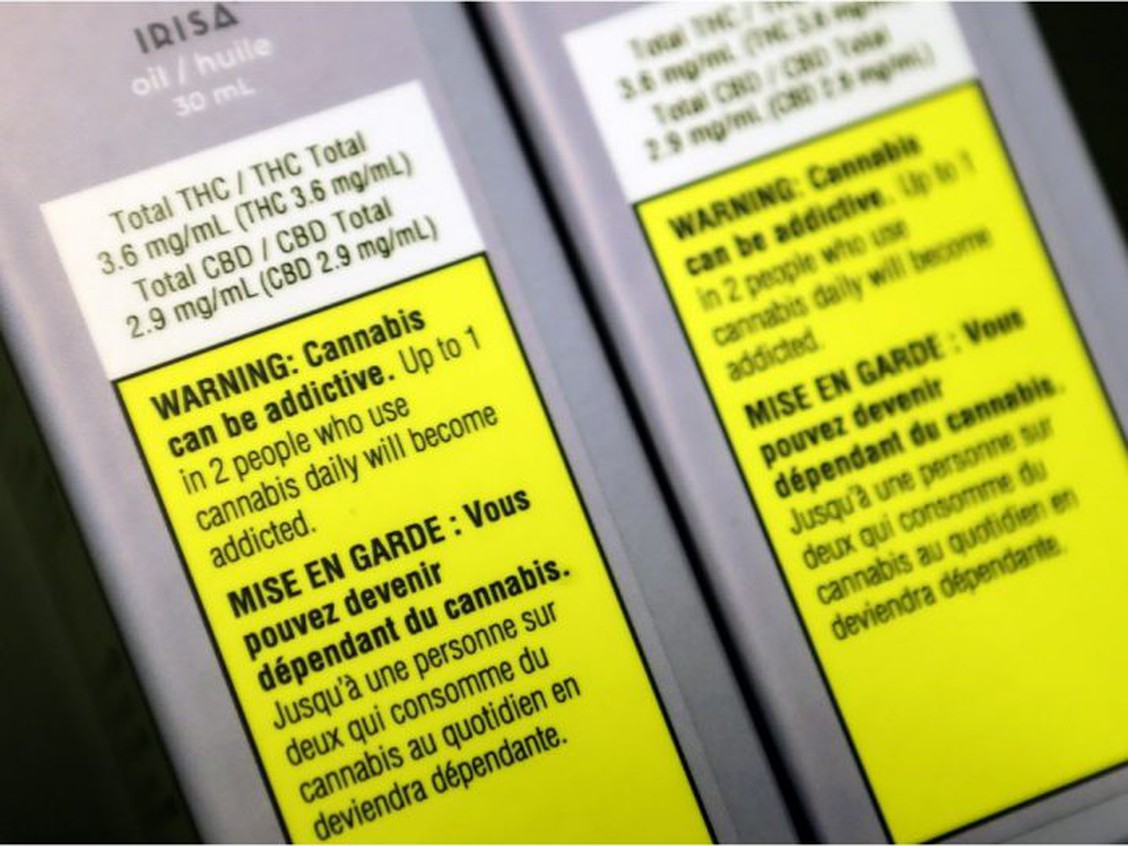You are here
Home 🌿 Recreational Marijuana News 🌿 'This approach to labelling is misleading Canadian cannabis consumers' 🌿'This approach to labelling is misleading Canadian cannabis consumers'

The CEO of B.C.-based licenced producer Pure Sunfarms is sounding the alarm about potency labelling practices among Canadian cannabis companies.
In a blog posted on LinkedIn, Mandesh Dosanjh says that some producers are taking a ‘static’ approach to labelling products, and the THC and CBD values displayed on the products may not be accurate for each individual batch.
“One potency label is pre-printed and applied across many batches which fall within a pre-determined range to save on costs. We call this approach static labelling. Knowing very well that potency is one of the top criteria that cannabis consumers look for in making their purchase decisions, we believe this approach to labelling misleads consumers by creating a false impression about the potency of their dried flower,” Dosanjh writes. “That does not sit well with us.”
Pure Sunfarms submitted a complaint about the practice to Health Canada in February. BNN Bloomberg obtained a copy of the complaint and was the first to report on it earlier this month.
According to Bloomberg, the complaint notes that 18 separate batches of products sold under Canopy Growth’s TWD brand are labelled at 20 per cent THC, and the ‘statistical likelihood of this many lots coming back with identical test result potencies of precisely 20.0 per cent is extremely low.’
Licenced producers are required to label both the THC and CBD potency of their products. According to Dosanjh, Pure Sunfarms takes a ‘dynamic’ approach to labelling its products and produces new labels for each batch.
“Potencies are customized, individually printed, and applied to each batch of final product,” Dosanjh writes. “This is referred to as a dynamic approach to labelling, an approach that we believe provides consumers with complete clarity — they know exactly what they are getting with every purchase.”
According to the complaint, other companies may be engaged in ‘static’ labelling, where a mid-point is taken from test results and applied across multiple batches.
Dosanjh is calling on the industry, from producers to retailers, to speak up about the issue. “It’s important that we take action or risk losing consumer confidence in all regulated product,” he writes.
“This is a critical moment,” tweeted Dan Sutton, CEO of producer Tantalus Labs, in response to Bloomberg‘s article. “Kudos to Mandesh for addressing an issue that is ultimately tantamount to fraud. If @HealthCanada does not penalize this behaviour, it will signal many other bad actors to misrepresent potency for commercial gain.”
THC scores remain one of the biggest drivers of consumer purchasing but questions about the accuracy of those scores have lingered for years. A related issue is the practice of ‘lab shopping,’ where cannabis companies partner with labs that are easier to work with or assign a higher THC score to the company’s products.
A 2018 study published in Nature found systematic differences in the cannabinoid content reported by different laboratories in Washington, which became the first U.S. state to legalize recreational cannabis in 2012.
“What has been a persistent problem in the industry is labs producing results that are not fully accurate, and that often manifests itself as inflating the THC numbers in the plant,” Nick Jikomes, the study’s lead author and Leafly’s principal research scientist, told The GrowthOp last year. “The packaging and labelling are, unfortunately, not always going to be accurate signifiers of the cannabinoid content of the plant.”
According to BNN Bloomberg, a spokesperson for Canopy Growth said that the company complies with Health Canada’s labelling requirements and only sells strains that “meet the product-specific cannabinoid targets, as tested both in-house and by independent third-party labs.”
Citing Health Canada’s regulations, Dosanjh writes that “we need to be putting exact potencies on our packs of dried flower.”
“People are still getting acquainted with the cannabis industry in Canada. This level of transparency is vital as we keep the legitimacy behind legalization alive, so that we can forge ahead and provide consumers with safe, quality product that they can understand and trust,” he writes.
“If you agree with us, say something. This is not about looking for loopholes. It’s about starting a dialogue to protect the integrity of the regulated cannabis industry and standing up for what’s right for our consumers.”
420 Intel is Your Source for Marijuana News
420 Intel Canada is your leading news source for the Canadian cannabis industry. Get the latest updates on Canadian cannabis stocks and developments on how Canada continues to be a major player in the worldwide recreational and medical cannabis industry.
420 Intel Canada is the Canadian Industry news outlet that will keep you updated on how these Canadian developments in recreational and medical marijuana will impact the country and the world. Our commitment is to bring you the most important cannabis news stories from across Canada every day of the week.
Marijuana industry news is a constant endeavor with new developments each day. For marijuana news across the True North, 420 Intel Canada promises to bring you quality, Canadian, cannabis industry news.
You can get 420 Intel news delivered directly to your inbox by signing up for our daily marijuana news, ensuring you’re always kept up to date on the ever-changing cannabis industry. To stay even better informed about marijuana legalization news follow us on Twitter, Facebook and LinkedIn.




